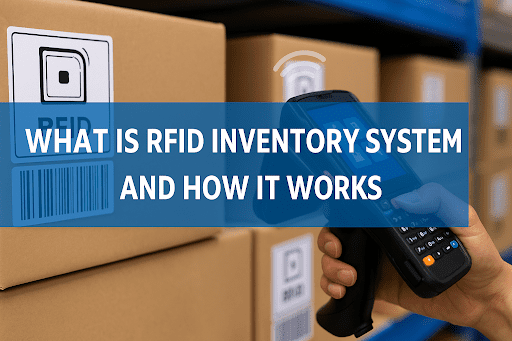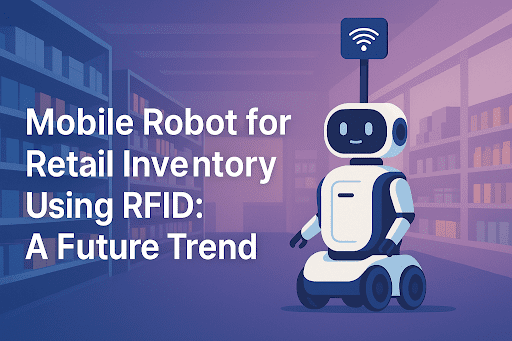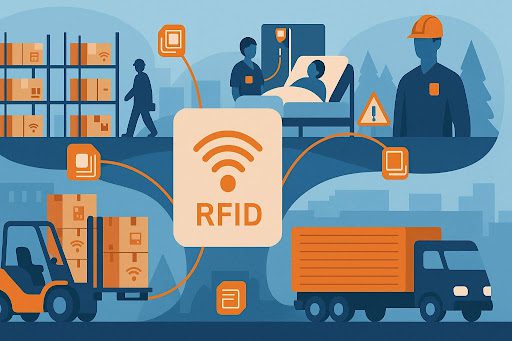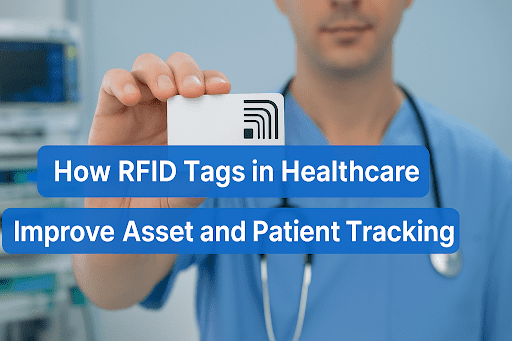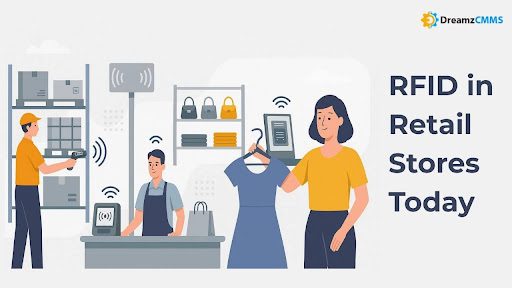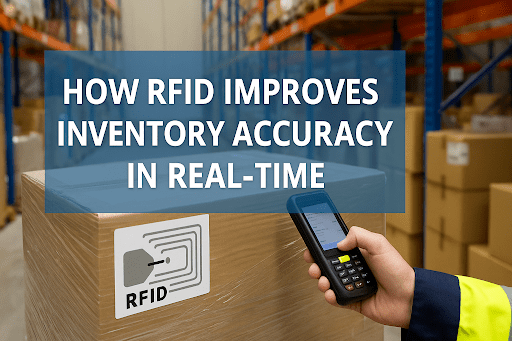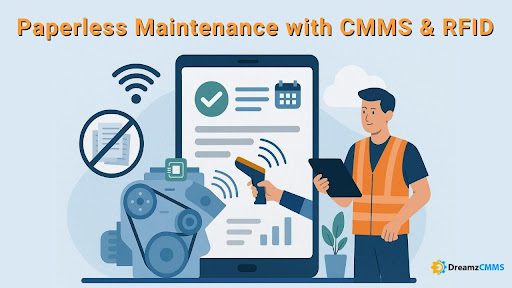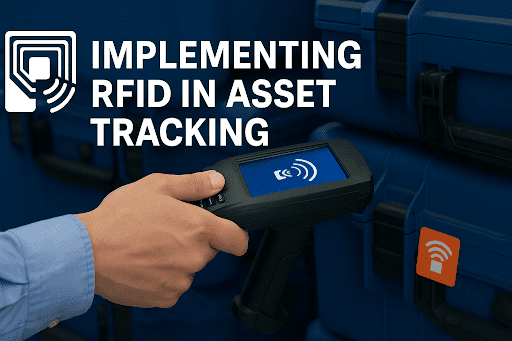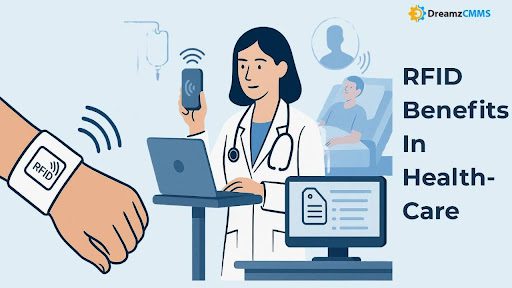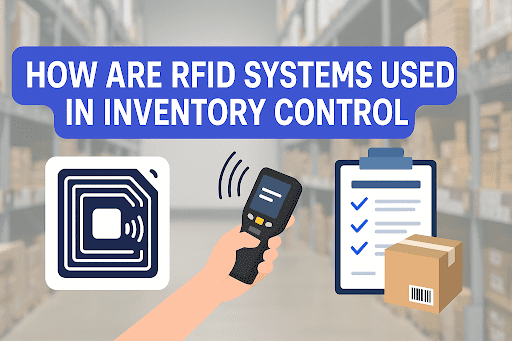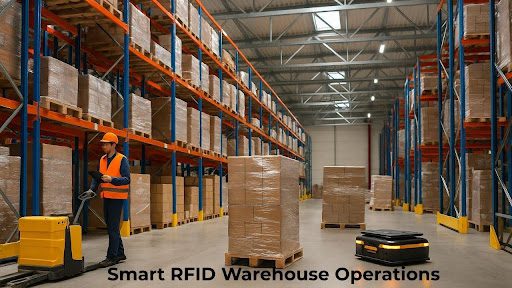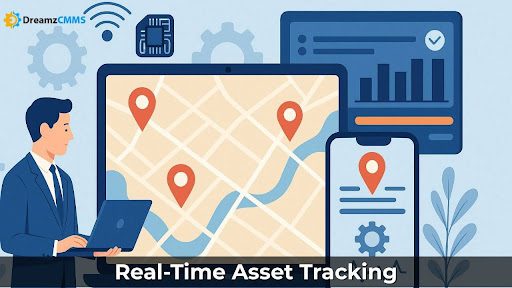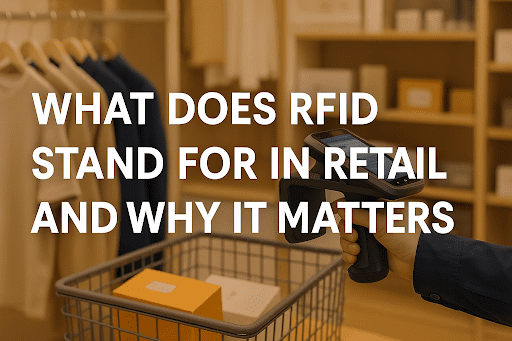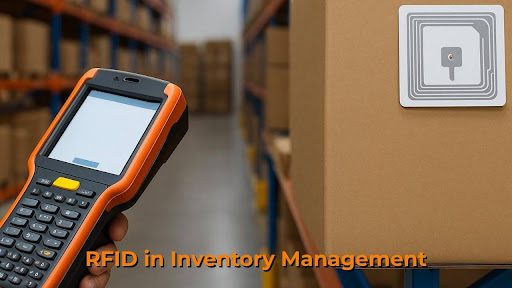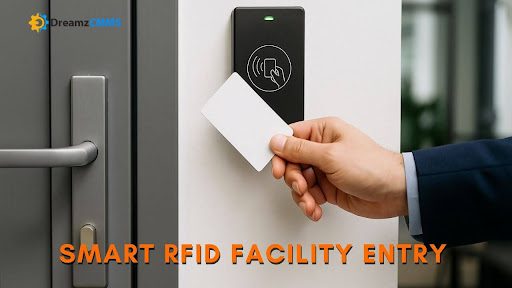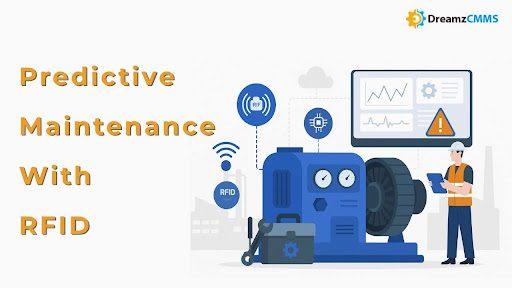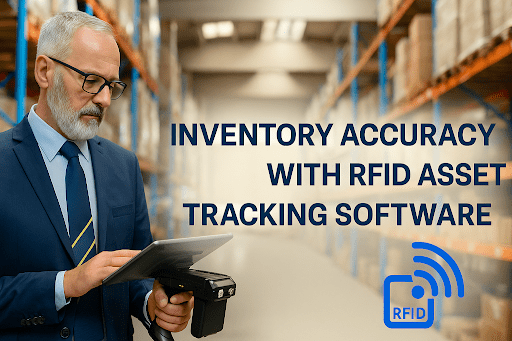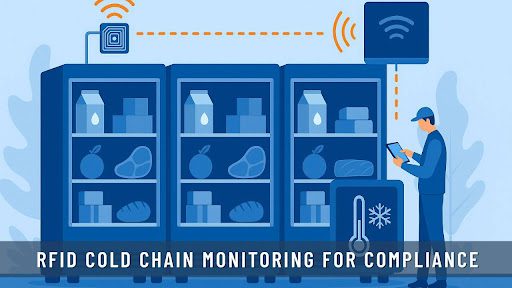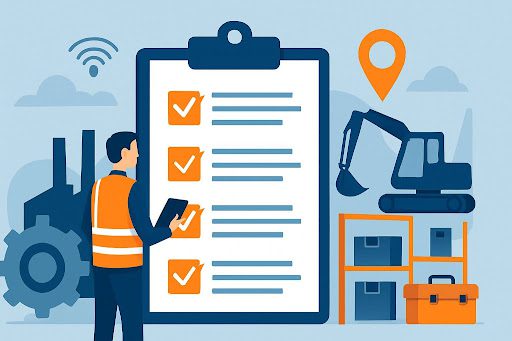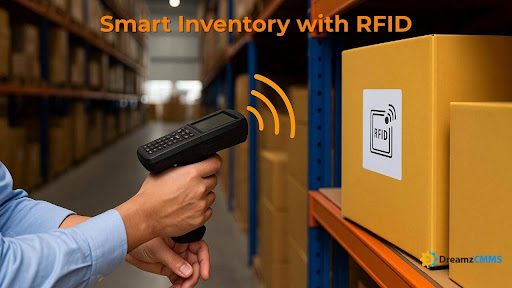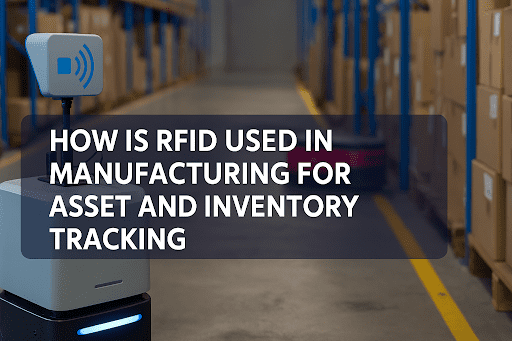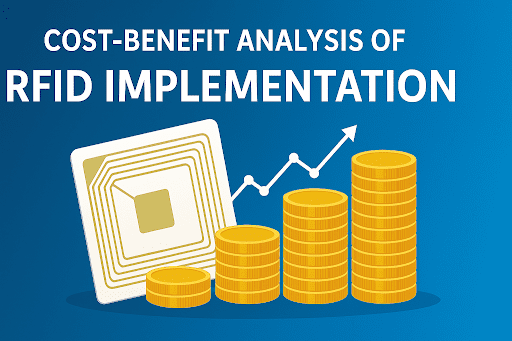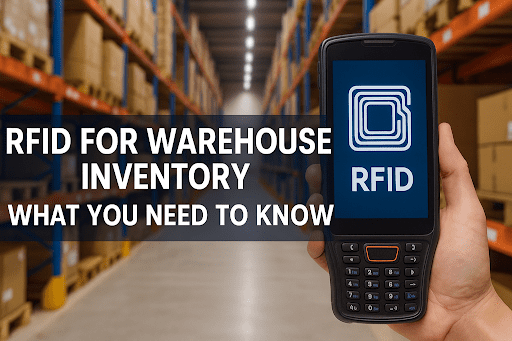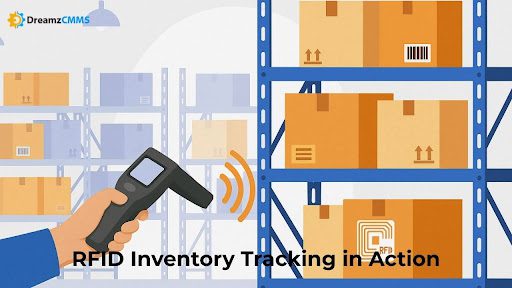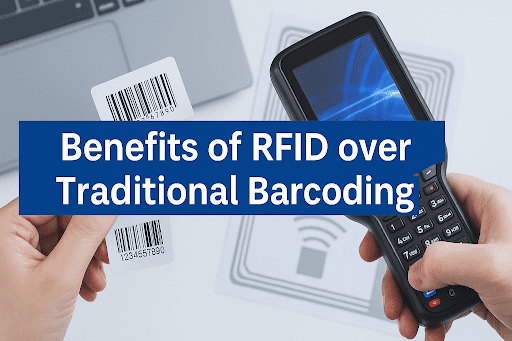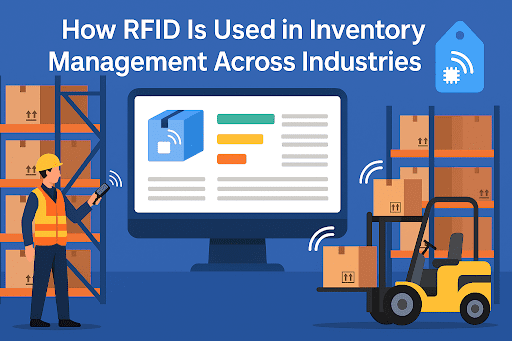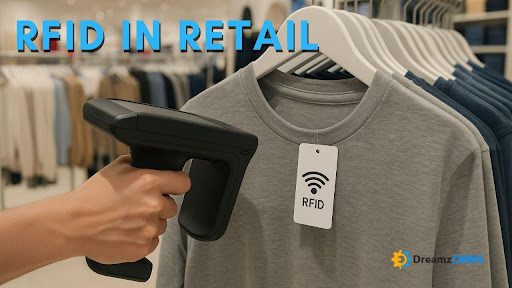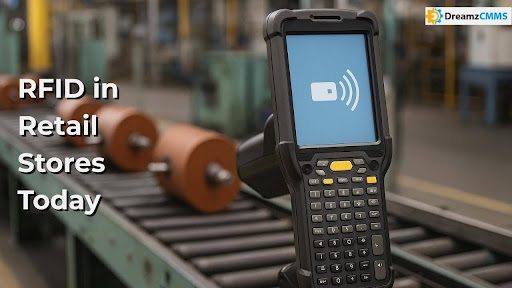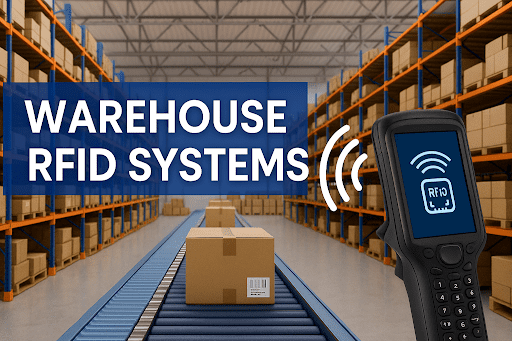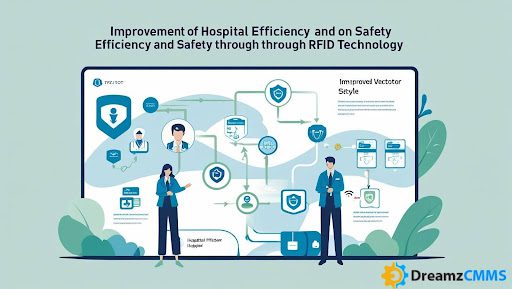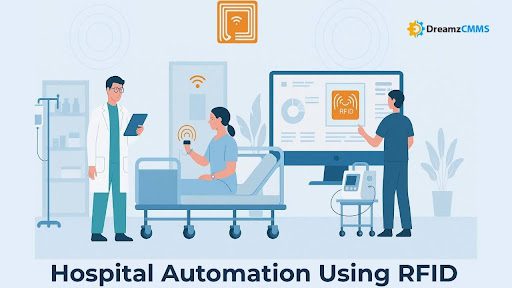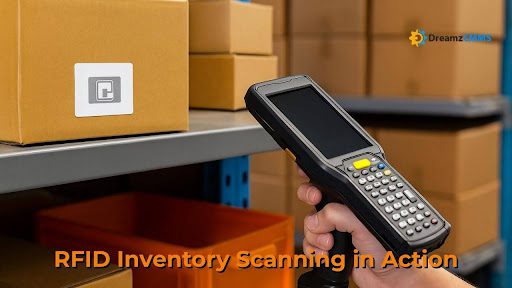 BACK TO Blog
BACK TO Blog
Asset Rental Management
RFID Asset Tracking
5 Innovative Uses for RFID Technology in Retail 2025
- August 26, 2025
- DreamzCMMS Team
- 9 minutes read
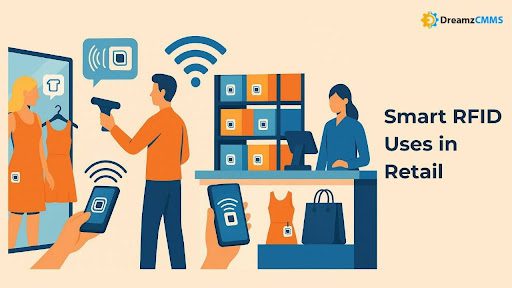
- August 26, 2025
- DreamzCMMS Team
- 9 minutes read
Retailers are currently experiencing a technological shift while RFID technology stands as one of the primary drivers of this evolution in the retail industry. RFID technology has progressed beyond basic product labeling since its introduction and now powers intelligent retail environments and customized consumer interactions and optimized supply chain operations.
RFID retail technology innovations have emerged to enable automated restocking and checkout-free shopping which helps businesses decrease operational costs and boost sales conversion rates and build exceptional shopping experiences for their customers. The basic concepts of RFID inventory tracking in retail become clearer through How to Use RFID for Inventory Tracking: A Quick Guide for the fundamentals before understanding advanced retail applications.
This article examines five progressive RFID retail applications that will transform shopping experiences in 2025 by presenting actual examples and industry advantages together with market developments.
Optimize Retail OperationsAsset Maintenance Management Software The implementation of innovative retail RFID systems provides substantial benefits yet retailers must overcome specific challenges which need thorough planning and execution. Retailers need to identify these challenges in advance so they can create specific plans to achieve successful implementation. |
1. AI-Powered Inventory & Supply Chain Optimization
The implementation of AI-powered inventory optimization stands as one of the most advanced RFID retail solutions during 2025. Retailers use RFID technology alongside artificial intelligence and cloud-based analytics to replace manual calculations with automated real-time precision throughout their entire supply chain.
How It Works
- Every product throughout the warehouse and shop floor receives its own RFID tag for identification purposes.
- RFID readers automatically track product movements throughout storage operations and transportation and shelf placement processes.
- AI systems use collected data to create predictive models which both predict customer demand and detect stock shortages to initiate prompt restocking orders.
Benefits for Retailers
- Zero Guesswork in Stock Planning – Eliminates manual stock counts and ensures accuracy.
- Reduced Waste – Fresh products or seasonal goods are shipped to the right store at the right time.
- Faster Replenishment – AI flags low stock early, triggering auto-orders.
For a more foundational understanding, check out What Is RFID Inventory Management and Why It Matters to see how these systems form the backbone of advanced retail operations.
Through this system a worldwide fashion retailer decreased its overstock by 25% and enhanced product availability to 40% which resulted in increased sales without additional storage expenses.
2. Smart Fitting Rooms for Personalized Shopping
Smart fitting rooms represent one of the most groundbreaking RFID retail applications which transforms the way customers shop in stores. The technology-based fitting rooms use RFID systems with digital displays to provide customers with personalized product information and immediate assistance from within the fitting area.
How It Works
- The RFID readers automatically detect and identify each garment when a shopper enters items into the fitting room through RFID-Enabled Clothing Tags.
- The digital mirrors show customers information about their items including prices and available colors and sizes and recommended matching products.
- The system sends immediate alerts to store staff through mobile devices which enables them to bring different sizes or styles directly to the fitting room.
Shopper Benefits
- Convenience – No need to leave the fitting room to find a different size.
- Style Recommendations – AI-powered suggestions for complementary items increase satisfaction.
- Informed Decisions – Customers see complete product information before purchase.
The premium fashion label installed RFID retail customer experience technology in its flagship stores which resulted in a 15% boost of conversion rates from 30% to 45% among shoppers who used smart fitting rooms.
3. Next-Generation Checkout-Free Stores
New RFID-based checkout-free retail solutions provide retailers with an affordable method to deploy scalable automated checkout systems.
How It Works
- RFID-Tagged Merchandise – All products carry unique identifiers.
- Smart Gateways – Readers installed at exits scan all items in a basket or bag instantly.
- Automatic Payment Processing – Linked mobile apps or stored payment methods handle transactions in seconds.
Retailer Advantages
- Faster Throughput – Eliminates queues, encouraging more frequent visits.
- Lower Staffing Requirements – Fewer checkout operators needed.
- Improved Loss Prevention – Alerts trigger for unpaid items passing through exits.
Mid-sized supermarkets use RFID retail automation to operate quick transactions that take under 30 seconds thus improving store capacity and decreasing customer wait times during peak periods.
4. Hyper-Personalized Marketing & Loyalty Programs
The modern retail environment demands customized timely offers to customers who receive these promotions through RFID retail solutions using store behavioural information.
How It Works
- Customers activate RFID loyalty cards or wearables which serve as linked profiles for their accounts.
- Behavior Mapping tracks how customers spend their time across different store sections and monitors what products they pick up as well as their time spent in each area.
- Targeted Promotions use in-app and digital signage displays to deliver customized promotions based on customer interests.
Why It Works
- Real-Time Engagement – Promotions reach customers while they’re still considering a purchase.
- Customer Loyalty – Personalized rewards strengthen brand connection.
- Better Insights – Retailers get granular data to refine product placement and promotions.
A beauty retailer implemented smart retail RFID innovations to offer personalized promotions to loyalty members resulting in a 20% increase in average basket size and a 50% boost in loyalty member sign-ups.
5. Automated Reverse Logistics & Returns Processing
Future RFID retail applications simplify the entire return process from verification to restocking at a low cost.
How It Works
- RFID readers perform instant product verification that checks both product authenticity and purchase history.
- Systems use automated condition checks to identify items which qualify for resale or refurbishment or recycling purposes.
- Real-Time Inventory Updates – Items reappear in inventory within minutes of acceptance.
Benefits
- Faster Refunds – Improves customer satisfaction and trust.
- Fraud Prevention – Eliminates fake returns with tamper-proof verification.
- Lower Operational Costs – Reduces manual inspection workload.
The comprehensive explanation of asset protection through RFID in various industries appears in What is RFID Asset Tracking. Retailers need to investigate RFID Asset Tracking Software because it allows them to connect their return operations with their entire inventory management system.
RFID Retail Innovation Trends in 2025
1. The combination of RFID with Internet of Things devices that include temperature, humidity and motion sensors is becoming more common in retail. The technology offers essential value to perishable products such as fresh produce dairy items and pharmaceuticals. RFID tags with sensors embedded within them enable real-time monitoring of cold storage temperature conditions which activates warnings when safety boundaries are breached. The integration of these systems prevents spoilage and maintains compliance with food safety regulations.
2. Modern consumers have made ethical sourcing and authenticity verification their top priorities. Retailers can create unalterable digital records of product journeys from raw material acquisition to store display through RFID system integration with blockchain technology. RFID product tags enable customers to view product origins and sustainability certifications and supply chain history through a quick scan which builds brand trust.
3. The combination of AI with RFID data enables a robust predictive analytics system. Retailers use real-time sales information and seasonal purchasing data together with customer actions to improve inventory restocking processes and promotional planning and demand forecast capabilities. The implementation of this approach helps businesses cut down their overstock and reduce markdowns and boost their profitability.
4. Retailers can use RFID technology innovations to track sustainability metrics at the product level because customers now base their purchasing decisions on environmental responsibility. The tracking capabilities of RFID enable retailers to document their products' entire lifecycle from production through transport until disposal which helps them achieve sustainability objectives and share environmental information to customers. The visibility of product origins finds strong appeal among buyers who care about the environment.
5. The growing consumer interest in sustainable consumption leads retailers to explore rental along with resale and subscription-based business models. Advanced retail RFID systems support the implementation of these models because they allow continuous monitoring of rented or pre-owned items including designer clothing and tools and electronic devices. The system provides precise asset location tracking and minimizes losses together with automated return processing.
Retailers who adopt this business model can link Asset Rental Management Software with RFID to control the entire process of checkout to return verification which produces accurate bills while ensuring timely returns and a seamless customer experience.
Challenges for Retailers Adopting RFID
1. The expense for RFID tags together with fixed or handheld readers and software integration remains high during the initial phase for extensive retail networks. Although RFID tag prices decreased during the last years the high cost of infrastructure deployment creates budgeting difficulties. Many retailers discover that their return on investment happens fast because they experience decreased shrinkage together with enhanced inventory management and improved sales conversion rates.
2. RFID systems have the ability to track both products and customer activities through their connection to loyalty programs and payment applications. The collection of customer data through RFID systems creates privacy issues which require retailers to obtain transparent consent from their customers while following GDPR or CCPA regulations. Retailers need to establish detailed policies about data acquisition methods and storage procedures and utilization practices to establish customer trust.
Forward-thinking retailers address implementation barriers by deploying RFID solutions in controlled phases through store pilots which eventually expand to all locations within their company. Organizations choose scalable cloud-based RFID platforms like RFID Asset Tracking Software because these solutions provide flexible integration and real-time analytics and work with different retail systems. This strategic deployment method minimizes risks and enables the technology to expand according to business development.
Conclusion
The uses of RFID technology in retail operations during 2025 reach far beyond traditional inventory tracking capabilities. Next-generation RFID retail technology enables retailers to develop AI-operated supply chains and smart fitting rooms as well as automated checkout systems and individualized marketing and automated returns which enhance operational efficiency while improving customer satisfaction and revenue growth.
RFID technology has tremendous potential to transform retail operations across apparel and grocery and electronics sectors through its various innovative applications. The evolution of future RFID retail applications will lead to the development of smarter and more sustainable retail spaces through AI, IoT and blockchain integration.
Organizations which want to implement advanced RFID retail solutions should begin by selecting flexible platforms that include:
- RFID Asset Tracking Software – For real-time visibility, loss prevention, and streamlined returns.
- Asset Rental Management Software – For tracking rentable items, managing billing cycles, and ensuring timely returns.
Start your RFID Retail Innovation Today
DreamzCMMS can be your trusted partner for advanced retail technology solutions, helping you achieve operational excellence through RFID-powered systems.Schedule a personalized demonstration and discover how our solutions can transform your retail operations in 2025 and beyond. - Free Demo
Ready for More?
Talk to one of our CMMS experts and see how DreamzCMMS can simplify your maintenance operations.
Book a free consultation